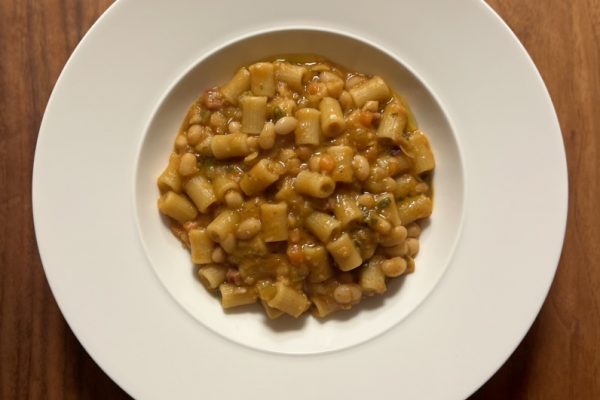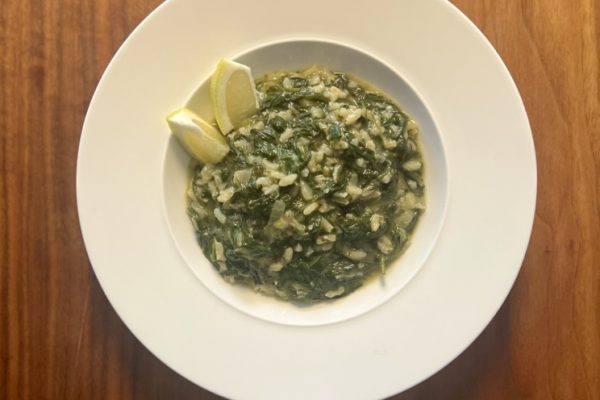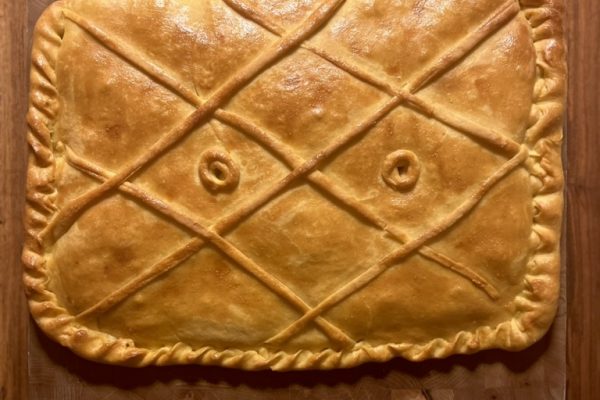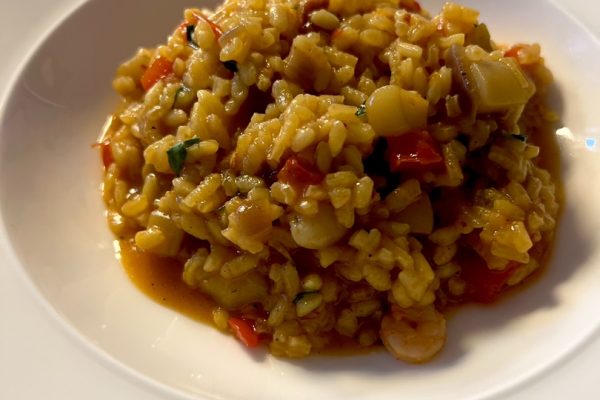Not much needs to be said about goulash. Who doesn’t know it?
Admittedly, this classic is not for vegetarians. But next week we will offer a purely vegetarian or vegan recipe – we promise.
Cooking a butter-tender goulash is fascinatingly easy. There are, of course, countless recipes, many of which are great. Ours is subtle in flavour, yet has plenty of depth and, above all, succeeds every time – for sure!
You only need a few ingredients:

Beef and onions are key. The ideal piece of meat is the calf, but you can also use other parts that are suitable for braising. It is important that it is rather long-fibred and rich in connective tissue – the meat that would quickly become tough if roasted.
The basic rule for this recipe is simple: the ratio of the weight of meat and onions is 1:1. You cook 1 kg of meat for four people – then also use 1 kg of onions.
Cut the meat into cubes of about 3 cm in length, as same size as possible. Or ask your local butcher to do it for you.
Then it’s time for the onions. Cut off the top and then halve them.

This technique also makes it very easy to peel off the skin.
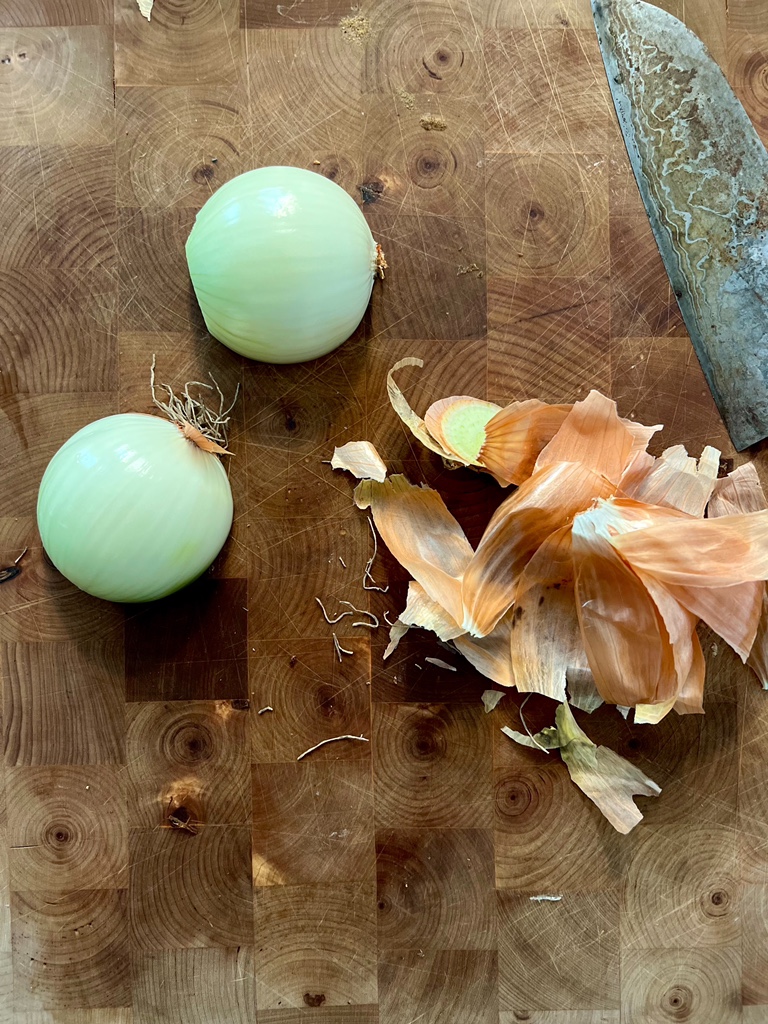
Attention: You must now cut the onion halves into strips across the grain – not lengthwise! The sauce is made from the onions, which is why we need so many of them. However, we want parts of the onions to remain chunky. If you cut them crosswise, they will have a completely different texture.

When this is done, heat some neutral-tasting oil in as large a casserole or roasting pot and sear the meat cubes on all sides over a fairly high heat until they are nicely browned.
On our cooker, we do this on level 8 of 10. We don’t want to cook the meat, but develop roast aromas.
To do this, we don’t put too much meat in the pot at once. The bottom should just be covered so that you can keep control and sear everything evenly. This can take up to three minutes per side of a piece of meat.

Then we take the meat out of the pot and put it into a deep container. There will still be juice coming out, which we don’t want to lose.

Now we add the onions to the pot and sauté them on medium-high heat (we: 6 of 10) for about 8 – 10 minutes. The onions should not brown, but should be allowed to develop their aroma. After half the time, you can sprinkle some icing sugar, this creates even more caramelisation and gives the sauce a deeper colour later.
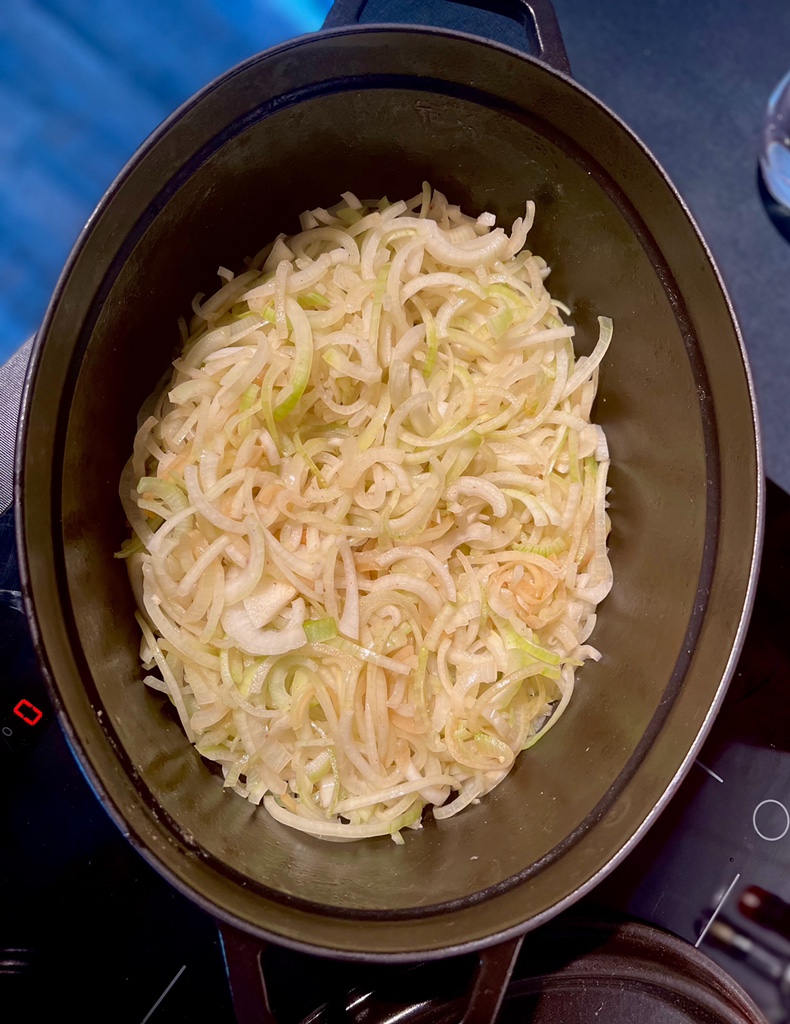
When the onions are nicely translucent and fragrant, create some space at the bottom of the pot and fry 1 – 2 tablespoons of tomato paste. Then mix it thoroughly with the onions.

Now add the meat, with all the juice that has come out of it in the meantime.

Pour chicken stock into the pot, about 1 litre per 1 kg of meat. Depending on the size of the leaves and the total amount you are cooking, add bay leaves (at least one, for us it was three smaller ones).

Put the lid on, but do not close the pot completely. The sauce should be allowed to reduce. This can be done very easily by placing a cooking spoon on the edge of the pot so that a gap remains open.
Now you have to watch the cooking process for a few minutes and adjust the temperature so that light bubbles rise, but the dish does not boil under any circumstances (for us: 2 – 3 out of 10). This is the secret of braising. If you cook the meat, it will become hard and dry. If you let it simmer below the boiling point, it will be soft enough to be eaten with a spoon.
And that’s exactly what you’re doing now, for at least four hours. Free time in which your food becomes delicious all by itself.
Check the sauce after three hours. If it still seems too runny, take off the lid. Remember that you will then have to adjust the temperature up a little.
Now for the crucial spices that give goulash its characteristic flavour:
Chop 2 – 4 cloves of garlic very finely, depending on taste and size. Add a good teaspoon of caraway seeds (preferably not powder) and the same amount of dried marjoram. Also grate the zest of half an untreated lemon (per kilo of meat).

Now dissolve a tablespoon of paprika powder in a little water so that it does not form lumps. We recommend Spanish smoked paprika.

When the meat has braised for four hours, add these spices and stir everything well. Now let it simmer gently for at least half an hour so that the flavours can develop and combine.
Before serving, season the dish with salt. If you want to add spiciness, add some cayenne or Espelette pepper (optional).

As a side dish, we recommend some white bread to soak up the sauce. That’s all it needs.
Enjoy.
And may the taste be with you.
Ingredients (for 4 people):
1 kg beef (calf)
1 kg onions
Tomato paste
1 l chicken stock
Bay leaves
Some neutral oil
Garlic
Dried marjoram
Caraway seeds
1 untreated lemon
Paprika powder
Optional: Cayenne or Espelette pepper

